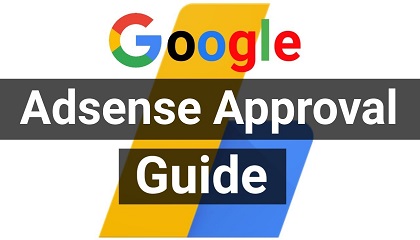Google AdSense Guideline: AdSense All Policy
If you want protect your adSense account, you first follow adSense policy rules. Google Says “We hope that all publishers participating in AdSense have a long and successful partnership with Google. For that to happen, it’s important that you familiarize yourself with the AdSense Program policies. The more you know about our policies, the more likely it is that all sites and pages where you display Google ads will fully comply with these policies. Google AdSense Guidline
To get you started, we’ve highlighted some of the most important and commonly violated policies below. These simple rules aren’t a comprehensive list of our policies, but following them will help keep your account in good standing.” Google AdSense Guidline
Google AdSense Guideline
AdSense Policy- (1st Step)
- Don’t click on your own Google ads.
- Don’t ask anyone to click on your Google ads.
- Choose the location for your ads carefully.
- Be aware of how your site is promoted.
- Use Google Analytics.
Don’t click on your own Google ads
If you’d like more information about one of the advertisers appearing on your site, please type the URL of the ad directly into your browser’s address bar.
Don’t ask anyone to click on your Google ads
Encouraging users to click on your Google ads is strictly prohibited — whether directly or indirectly, on your own site, on third-party sites, or via email. Users should always click on Google ads because they’re interested in the services being advertised, not to raise money for your site or for a cause, or to generate some sort of reward for themselves.
Choose the location for your ads carefully.
Publishers should never use tricks or deceptive practices in order to trigger accidental clicks on ads. Make sure that your ads are well-placed on your site, away from interactive elements, do not mimic the surrounding content and are not placed under misleading headings.
- Maintain adequate space between the ads and the page controls. For example, on a site with games, try to avoid placing ads too close to the game controls. We generally recommend a minimum distance of 150 pixels between the flash player and the ad.
- Please don’t place content ads on interstitial pages, game interfaces, or sites dedicated to streaming videos. If you’d like to earn from your video-streaming or game interface by overlaying, in-stream, or interstitial placements, check out AdSense for video, AdSense for games, or the YouTube Partner Program
Be aware of how your site is promoted
Publishers need to be very careful when purchasing traffic or setting up ad campaigns with third parties. Before contracting with any ad network, you should ensure that they will never display your site in pop-ups or as a result of the actions of any software application. Please also keep in mind that publishers using online advertising of any kind must comply Google’s Landing Page Quality Guidelines.
Use Google Analytics
If you’re not yet using Google Analytics, we encourage you to install it to better understand and optimize your site traffic. Knowing where your traffic comes from goes a long way in getting the most from your site. Learn more about Analytics on their site. Or, watch helpful videos on the Analytics YouTube channel.
AdSense Policy- (2nd Step)
- Content guidelines
- Ad implementation
Content guidelines
Publishers are responsible for the content on every page displaying their ads, even if the content was created by someone else, such as on sites with user-generated content.
- Content restrictions apply to pages/sites displaying Google ads.
Google ads may not be displayed alongside any type of content prohibited by our Program policies and the Google Publisher Policies. It’s your responsibility to ensure that all of your pages adhere to these policies. - Create sites with unique and relevant content.
Google will take action against domains that don’t add any value to users. Familiarizing yourself with Google’s Webmaster Guidelines will introduce you to some best practices of successful publishers, including:- Focus on relevant and concise content, since placing excessive, repetitive or irrelevant keywords in the content or code of web pages will not be allowed.
- Avoid using hidden text or hidden links within your site’s webpages.
Ad implementation
Once the code is created in your account it shouldn’t be altered or placed anywhere that violates our ad placement policies such as in pop-ups, in software, or on sites that mimic Google.
- Don’t tamper with the AdSense code.
Once you’ve generated your code, we ask that you do not alter any portion of the code or change the layout, behavior, targeting, or delivery of ads for any reason, unless specifically authorized to do so by Google. - Don’t use pop-up prompts or automatic software installations.
Google is dedicated to improving the user experience on the Internet, and promoting responsible software principles is part of that effort. Sites showing Google ads may not prompt users to install software on their machines. Publishers must also not attempt to change users’ browser home pages automatically or via pop-up prompts. - Respect Google trademarks.
Framing or mimicking Google pages is strictly prohibited by our Guidelines for Use of Google Brand Features. In addition, publishers may not use any Google Brand Features such as Google trademarks, logos, webpages, or screenshots, without prior consent from Google.
Google AdSense always over smart all others. So always follow all rules, do not cheat to overtake policy.
